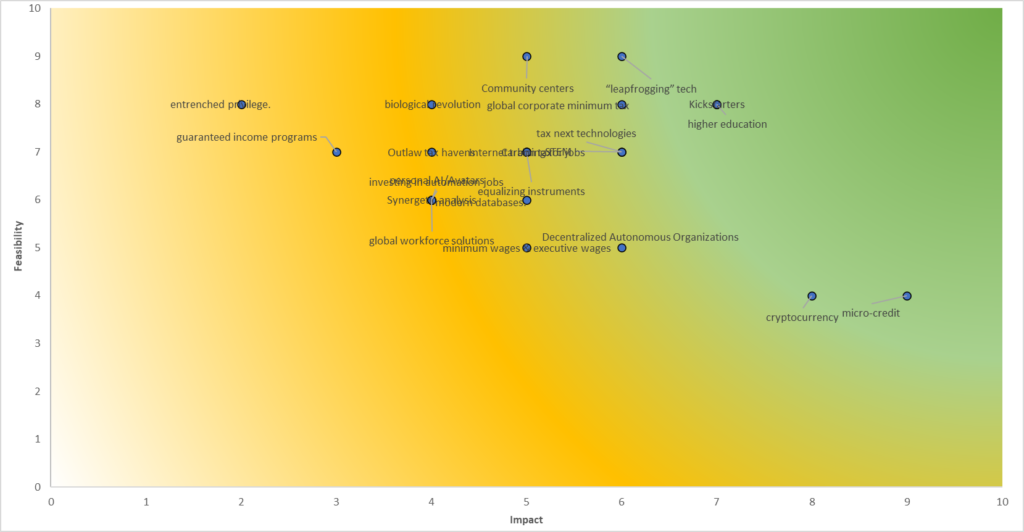iPhone 5 Hyper-Anticipation: It Didn’t Mean What You Think it Meant (AGAIN)
iPhone 5 Hyper-Anticipation: It Didn’t Mean What You Think it Meant (AGAIN)
Okay, now — bear with me on this — and check it out:
For now and for better or worse, The United States is home to a plurality of the world’s techiest technology, investment capital, productive creativity, and cutting edge research. As such, hiccups in those technology-driven economies of real currency and ideas can ripple around the entire planet.
Amid considerable anti-intellectualism and various public & private R&D funding issues, American tech leadership and innovation is stuttering and sputtering and might be in danger of faltering. While we’re not at that point just yet, there is an interesting harbinger with a peculiar manifestation: New iPhone Anticipation Loopiness. As I said, bear with me.
_______________
This is a repost & redux from an October 5, 2011 Anthrobotic.com piece — published a day before the suspected-to-be-iPhone 5 was released as the iPhone 4S. While the fanboy drool and mainstream gee-whiz was considerably dialed down this time around (in part due to lots of leaking), the sentiment of this piece remains relevant and largely unchanged. Now, we did have the Nuclear-Powered Science Robot Dune Buggy with Lasers (AKA the rover Curiosity) this year, and that was very big, but on a societal level we still have a sad hole in our technology heart.
Of course any hand-wringing about the underlying catalyst for weird iPhone fervor is a so-called first-world luxury, but to that I say “Shhhh, Trickle Down Technonomics©® is real.“
_______________
The Great Want
I was half-seriously saying to my friend Jason last night that waiting for the iPhone 5’s release is like waiting for Christmas morning when we were 10. Except that the reveal of this present will be more like “Here’s what we got you, but you can’t actually have it for another two to four weeks.“ That part’s kinda cruel. He’s at 3G, I’m at 3GS — upgrade is ferociously justified (and cheap here in Japan). So, like lots and lots of Americans and other people around the world, we’ve been not so patiently waiting for Tuesday morning; we have also been part of this peculiar intensity.
Troubling Telecommunication Technolust
Now, is there any other product, across any and all areas of industry, for which a pending release has been the subject of such anticipation, such broad media coverage, and so much conjecture? And how is it that the key marketing strategy for a company’s flagship revenue source is their absolute refusal to talk about the product until after its launch? Do we consumers really want the new hotness that badly? How are all these strings being pulled? How can so many otherwise reasonable adults have so much longing for this device?
Even if one’s not an iPhone user and has no plans to convert, chances are one is at least curious about what Apple’s got. I mean, be honest, even if you’ve got only a very general interest in technology, you’re going to be paying attention to the announcement. And if you’re not actively following the story, you’ll hear about it passively — it will be everywhere for a few days or a week or so.
So… what’s this all about?
It’s just a pretty new phone, right?
No.
We know that a phone hasn’t been just a phone for several years now — a lot of us hardly use the telephone part of the device at all. And, they’ve become, well, you know — smart. This guy (Mike Elgan) and this woman (Amber Case) have developed theories suggesting that smartphones are actually highly personalized digital information prosthetics, and we users are already cybernetic organisms (Anthrobotic.com nods in agreement). Smartphones connect us as individuals to the vast stream of human communication; they non-invasively enable the RAM & ROM of all recorded human history into the palm of our hands, and devices’ elegantly rapid penetration into everyday life has been… (drama pause) profound. Ask organizers and participants in the Arab Spring. Ask villagers in developing countries who lack roads and electricity — but do have respectable data plans. And ask again, if you like.
Mobile phones have become much more than the name implies, and as a practical tool, the iPhone 5 in particular will be an exciting addition to comms and gaming and entertainment blah blah blah. As per usual, Apple will probably introduce hardware and software features that will shape mobile technology on a global scale — that’s what Apple does.
And all that’s awesome whoo-hoo way to go, but still, it’s #5, just the latest iteration.
Not really THAT big of a deal, so why the hell do we care so much?
Deep-Seated Social-Psychological Phenomena Available in Red, White, & Blue
It seems to me that shallow, mindless American consumerism, certainly a well-documented species, is not the primary force driving our overblown iPhone 5 excitement and anticipation and media coverage and hyperbole. You’d think so, but…
Listen for the thud — here drops a cheesy armchaired macro-diagnosis:
Subconsciously — in my country — the rabid anticipation for the iPhone 5 is actually about hope, inasmuch as it’s about the American Dream. In a way.
Or, more accurately, the corpsification thereof. In a way.
And that is because we the people have almost nothing else to be excited about.
(except: The Nuclear-Powered Science Robot Dune Buggy with Lasers)
We of the Uninspiring Slump
Over at Anthrobotic.com, fundamental to my silly-ass take on tech is the primary tenet of the 51%+ Positive Technological Utopianism Movement (that I totally just invented), which is:
Technology is the fundamental precursor to civilization and is therefore the most powerful social force in the universe, yo. Srsly.
Humanity is in the midst of a rapid upswing in almost all facets of human development. Things are just getting better, all across the board. BUT, there are still some crappy little downward notches in the larger upward curve. We’re in one of those — the American Dream has lost coherence - and we are desperate for something big, something to inspire and unite us, something more than, oh I don’t know, the impotent & mentally retarded discourse of America’s pathetic political charade, for example.
A leap too far? Overgeneralizing? Pandering to the Dumb? Just dumb?
Well, I suppose it’s possible that the population of the U.S. who find themselves anywhere on the mildly-curious-to-completely-rapt scale of interest in the iPhone 5’s pending release are a poor sample from which to gauge the attitude of a nation. But for that to be the case it would have to be in another universe with different rules. Because A: There are around 310 million people in the U.S., and about 100 million are smartphone users, and I’d guess (and read survey data reporting) that a strong percentage of them are pretty interested in learning about or buying the iPhone 5 — so if you think such a massive population block that is engaged and ready to take action on an issue provides a poor statistical sample, well then, you can’t count. And because B: those 100 million people have nothing else to give a shit about.
The iPhone 5, Insidiously Alluring in a Vacuum!
So what the hell am I saying here? Well, The iPhone is an incredible device that quite literally represents a truckload of previously impossible mobile functionality. Think about it — just 4.5 years ago it didn’t exist, and the App Store (which has been copied by, ummm… everyone) is barely over 3 years old. It’s a beautifully designed tool, elegantly powerful in so many ways. But, it’s no revelation, it’s just a very precedented technological creation of late 2011; it’s a consumer product — and in another year, we’ll want the next version, and the next, and so on.
Physical artifacts are usually outshined by big ideas, but the thing is this: while we’re lousy with the former, we’re fresh out of the latter.
Projecting
Now this isn’t about dorks like myself and those inhabiting this higher ranks of sciencyness and geekdom — we’ve got plenty to excite us. But everyday humans in the U.S., where traditional notions of culture are diffuse and diluted, tend to unite around ideas and ideals — and very often those drive and/or are a product of scientific or technological advancement of some kind — and sometimes, that can inspire others around the world. The mass-production of automobiles and human flight inspired notions of the freedom of movement, TV launched and inspired vast visual creativity, and following the Soviet advances, the Apollo missions united the nation, gave new appreciation for the Pale Blue Dot, ROI-ed ten$ of billion$, and inspired the rest of the world to continue pushing into the frontier of space. And, American computer technology, much of it pioneered by Apple, jumpstarted what will probably be the single largest paradigm shift in the history of our species. It’s become natural for us to see great positivity and opportunity in our technological achievements.
Americans fundamentally appreciate and embrace innovation, and we want look to the future with hope, longing for new ideas and new developments that create new economies and new possibilities. But for the time being now, our American Dream is stuck in neutral and we have no common rallying point. Our nation’s greatest point of unity and excitement and anticipation is for the release of another mobile telecommunications device — the best thing we have to look forward to is Tim Cook, 10:00am, PST.
Well That’s not so Uplifting Now, is it?
We desperately want good news, we desperately want a new great project stabbing toward some awesome goal — and there’s just… nothing there. The economy is crap, there is no great leader to inspire us, and there is no great undertaking for the betterment of all humankind. That’s where the iPhone 5 anticipation energy comes from. Americans want what is new, we want to push forward, we want profound ideas to inspire us now and for decades to come — it’s in the fabric of the nation. If we were about to launch a manned mission to Mars, or a Manhattan Project-style energy initiative, or building hotels on the moon, this announcement would be but a spark.
Myself and millions will soon have a state of the art, super cool new phone. And the Dream will stay on break. Such is life. But it’s not gone, and do check back later — we might have space tourism and near-infinite fusion energy pretty soon!
It’s Tuesday night here in Japan — going to sleep.
I’ll check the morning news straight away, and I’ll be excited about the phone I will own in a few short weeks. It’ll be awesome, I’m sure. And the world’s most valuable company will get more valuable, I’m sure.
Aside from the next-next iPhone and a new figurehead, will another year bring anything new? Not so sure.
(The Nuclear-Powered Science Robot Dune Buggy with Lasers came close, didn’t it?)
_______________
Thanks for reading!
-Reno at Anthrobotic.com
_______________




 A share of stock represents ownership in a corporation. A municipal bond represents a lien against a city—or the fees generated by an infrastructure project.
A share of stock represents ownership in a corporation. A municipal bond represents a lien against a city—or the fees generated by an infrastructure project. Like cars, homes require ongoing maintenance. But, most people weigh the maintenance cost against the benefit of having shelter, rather than comparing it to their gain or loss in value.
Like cars, homes require ongoing maintenance. But, most people weigh the maintenance cost against the benefit of having shelter, rather than comparing it to their gain or loss in value.
 With the rise of the automobile and power plants that burn fossil fuel, oil became a reserve currency of the 19th and 20th centuries. But there are two problems with it holding value over the long haul.
With the rise of the automobile and power plants that burn fossil fuel, oil became a reserve currency of the 19th and 20th centuries. But there are two problems with it holding value over the long haul. This perfect asset would derive trust from mathematics and crowd-sourced consensus. It would not require that anyone believe in a government, a bank, a land mass, or the uncertain supply of precious objects. Authenticity could tested easily and its value transmitted instantly. The history of each unit would be completely transparent. With free tools, anyone, anywhere could trace its history of moving from one owner to the next.
This perfect asset would derive trust from mathematics and crowd-sourced consensus. It would not require that anyone believe in a government, a bank, a land mass, or the uncertain supply of precious objects. Authenticity could tested easily and its value transmitted instantly. The history of each unit would be completely transparent. With free tools, anyone, anywhere could trace its history of moving from one owner to the next.



